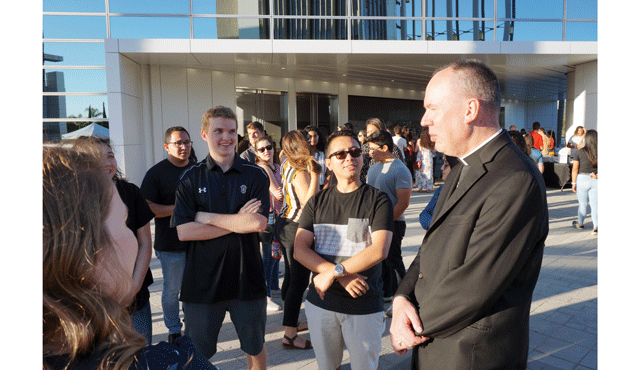As many as 6 to 8 percent of U.S. teenagers suffer from serious depression, and anxiety disorders affect one in eight children, says the Anxiety and Depression Association of America.
Teens with untreated anxiety are at high risk to perform poorly in school, miss out on important social experiences, and engage in substance abuse.
Could something as simple as prayer be the answer? Scientists say yes.
Baylor University researchers found that people who pray are less likely to experience anxiety-related disorders such as worry, fear, self-consciousness, social anxiety and obsessive-compulsive behavior.
For many people, God is a source of comfort and strength, says Baylor’s Dr. Matt Bradshaw, and through prayer, they enter into an intimate relationship with Him and begin to feel a secure attachment.
“They’re better able to cope with stress, they heal faster from illness, and they experience increased benefits to their health and well-being,” Dr. Bradshaw says.
Bradshaw’s findings add to the growing body of research confirming a connection between a person’s perceived relationship with God and mental and physical health. One recent study by Oregon State University found that religion and spirituality result in two distinct but complementary health benefits: Religious affiliation and service attendance is linked to better health habits, including less smoking and alcohol consumption, while spirituality, prayer, and meditation help regulate emotions.
In her book, “The SuperStress Solution,” Dr. Roberta Lee devotes a section to the topic of spirituality and prayer. “Research shows that people who are more religious or spiritual use their spirituality to cope with life,” notes Dr. Lee.
Dr. Glenn McClellan, a Tustin clinical psychologist and lecturer who taught the integration of theology and psychology at Vanguard University, notes that teens who suffer from anxiety and depression are often lonely, and the connection with God through prayer is a valuable way to combat their isolation.
“We’re made to be relational and connected to each other and to God first,” says McClellan, who belongs to La Purisima Parish in Orange. “Prayer life gives us the opportunity to express what’s in our hearts and hear the heart of God. Spiritual life and prayer are vital to healing in the mental-health world.”
Marriage and family therapist Tony Nguyen, who practices in Tustin and Fullerton, is a parishioner at Christ Cathedral and a member of the Diocese of Orange’s Mental Health Ministry team. Nguyen believes that prayer can help teens to surrender control to God, which helps relieve their anxiety and stress.
“I start from the foundation that deep in our hearts we want to be loved,” he says. “I draw a heart with a hole in it, and ask, ‘what will fill this hole for you?’ That helps them explore their spirituality.”
Such existential questions prompt teens to examine who they are, what their purpose is, and what matters most in their lives. “Once they discover God and God’s love within themselves, they discover they are a gift and they have a mission in the world.”
Mindfulness, meditation, and prayer play important roles in holistic mental health treatment, says Santa Ana-based therapist Vanessa R. Hernandez.
“Teens have so much stress and so many pressures,” Hernandez notes. “Prayer is good to cultivate at an early age to help them weather those storms and see them through the rugged years.”
She encourages patients, no matter their age or faith, to cultivate some sort of prayer discipline. “People who have some kind of faith practice tend to have better mental health,” she says. “Parents and families who expose children to faith provide a framework for them that sustains teens in a confusing time.”
In prayer, teens can address their hurt and ask for support. Confessing to God helps them identify their mistakes and makes things right. “Prayers of praise, adoration, and worship help people feel calm and connected with God,” Hernandez adds. “It feels like you’re not alone, and someone is looking out for you.”
Prayer not only calms the brain down in the short term, but when practiced over time can actually change pathways in the brain, notes Cecilia McKay, J.D., a Tustin-based associate therapist who taught catechism at San Antonio de Padua Parish in Anaheim Hills for 17 years.
“Prayer is not something new,” McKay notes. “Even Jesus Himself went to pray by himself and, in essence, regroup. Mother Teresa in ‘Dark Night of the Soul’ describes suffering what I consider to be clinical depression and talks about not going over the past or sitting in the future but finding peace in the present through prayer.”
NAMI Peer-to-Peer is a no-cost program for adults with mental health conditions who are looking to understand themselves and their recovery. Classes are Sundays from noon to 2 p.m. through December 8 at St. Kilian Catholic Church, 26872 Estanciero Dr., Mission Viejo. Reservations required; visit www.NAMIOC.org or call 714-544-8488.


